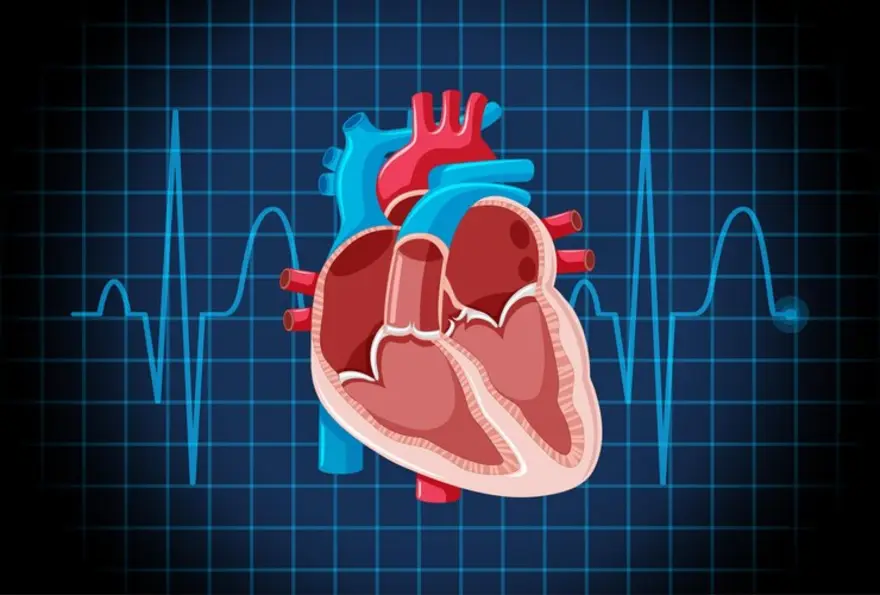Preventive Healthcare
Influenza (Flu) or Cold: Its Symptoms, Different Test & Preventive Measures
1190 Views
0

It is tricky to tell whether you suffer from a common cold or the flu. Both diseases affect your respiratory tract and have common symptoms. Both diseases are contagious but the cold is mild and takes around a week or 10 days to recover. Whereas with flu, you can recover in around two weeks and its symptoms are severe. It can also lead to complications like bronchitis, pneumonia, sinusitis, etc.
As both cold and flu are caused by viruses instead of bacteria, antibiotics don't work in these diseases.
Symptoms of The Common Cold
When you experience the common cold, you may experience a sore throat lasting 2-3 days or even a week. A runny nose, congestion and cough are other common symptoms. Usually, fever is less common in the cold but you may get mild fever in some cases. Children are more likely to get a fever in the cold.
Your nasal secretions will remain watery for the first few days in the cold. Later on, the secretions will become darker and thicker. Dark mucus is common and never indicates complications like bacterial or sinus infections.
How Long Do The Symptoms of a Cold Last?
You may experience symptoms of a cold for a week. For the first 2-3 days, you will remain contagious. It implies that you can pass on your cold to others. Thus you must take much-needed rest and isolate yourself from others around you, especially children and elderly persons. If the symptoms don't disappear after a week, you may probably have a bacterial infection and require antibiotics. Remember to consult your doctor.
Common Symptoms of The Flu
Symptoms of the flu are more severe than cold and come on quickly. Common symptoms may include headache, sore throat, muscle aches, fever, congestion, soreness, and coughing. You may also experience vomiting or diarrhoea in case of swine flu.
Similar to the cold, you can recover from the flu in 2-5 days and it is uncommon to feel run down for more than a week. In some cases, it may take longer to recover. Some complications of the flu include pneumonia, especially in children and the elderly. Flu can cause more harm to patients with heart or lung conditions. If you experience shortness of breath, you must contact your doctor.
When to Call The Doctor?
If you have a cold or flu, then you must contact a doctor in case you have the below-mentioned symptoms:
- Continuous fever: If you have a fever for over three days, you must contact a doctor as it can be a bacterial infection.
- Painful swallowing: It is common to experience mild discomfort in the throat during flu or cold but severe pain indicates strep throat, which needs medical attention.
- Continuous coughing: If you haven't recovered from the cough in 2-3 weeks, it may be a case of bronchitis that needs antibiotics. Sinusitis and asthma can also lead to continuous coughing.
- Headache and congestion: If the cold has caused blockage or congestion in the sinus passage, it may result in a sinus infection. Contact your doctor if you experience watery eyes with a thick nasal discharge after a week. It could be a bacterial infection that should be treated with antibiotics.
Do You Have The Flu or a Cold?
How can you determine whether you have a cold or flu? Initially, flu and cold have common symptoms like cough, nasal congestion, malaise, aches, etc. A common factor is that you may not experience a fever above 101 degrees if you are having a cold. But you may expect a high fever if you are down with the flu. Muscle and body ache is also common in the flu.
However, the most reliable way to know if you are affected by the flu is to get yourself tested.
Different Types of Flu Tests
There are 3 types of flu tests. Let's know them in-depth:
- Rapid Influenza Diagnostic Tests (RIDTs): It is also called RIDTs flu antigen tests and it is the most commonly done flu test. It can detect the presence of Influenza A and B by detecting antigens for the flu virus in your body. In this test, a swab is inserted in the nostrils to collect the sample.
You can get results from this test in 10-15 minutes but this test is not very accurate compared to other flu tests. You may have the flu even if the report is negative.
- Rapid molecular assays for flu testing: This test detects the genetic material of the flu virus. It takes 15-30 minutes to show results and is more accurate than RIDTs. This test uses a nasopharyngeal (NP) swab sent to a lab for analysis.
- Specialized laboratory flu tests: Other specialized flu tests are more accurate than the above 2 tests. One such test is reverse-transcription polymerase chain reaction (RT-PCR). The test swab sample is sent to the laboratory and it takes hours or even days to get the result. The Flu-Xpert Viral Panel is one such test which provides accurate results within 12 hours.
Preventive Measures For Cold And Flu
The most important and common measure for flu or cold prevention is washing your hands for at least 20 seconds with warm soapy water. In addition to this, you can also take the flu vaccine to stay away from seasonal influenza. Within 2 weeks of getting the influenza vaccine, your body will develop antibodies to protect you from infection. Children need two doses of such vaccines, administered one month apart.
Conclusion
Currently, the cases of H3N2 are rising along with other flu viruses. Knowing your diagnosis at the earliest can save you crucial time and allow your doctor to start proper treatment. The Flu-Xpert Viral Panel tests at Metropolis Labs can help diagnose if you are infected by a virus and specifically which virus. This panel, which uses the real-time Multiplex PCR method, determines the presence of 5 viruses through a one-time sample collection. The viruses tested for through this panel include influenza A, Influenza B, H1N1, H3N2 and RSV (Respiratory Syncytial Virus). Schedule an appointment with Metropolis Labs today and get yourself tested.
 Home Visit
Home Visit Upload
Upload














1701259759.webp)









 WhatsApp
WhatsApp